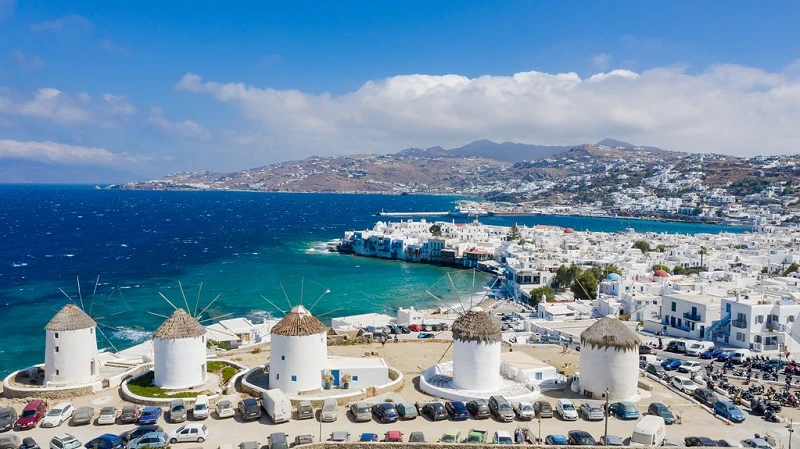
Greece is a lovely, magical place for all types of holidaymakers. Greece offers a wide variety of attractions, including the famous Cycladic Islands with their sugar cube-shaped homes and blue-domed churches, ancient forests, deep canyons, medieval castles, stunning beaches in a rainbow of colors, turquoise or deep blue waters, palm and pine or fir tree forests, mountain slopes or valleys, unspoiled natural beauty, or well-maintained cosmopolitan resorts.
Plan a trip to Greece can be a difficult task because there is so much variety and so much to see and do. Even knowing where to start might be overwhelming.
Many travelers handle this challenge by leaving the planning to a travel agency or traveling somewhere other people they know have gone.
This is not always a terrible strategy, but it can cost more money than necessary: either the travel agency will charge you for the service if they do it correctly, or they will book you the same travel arrangements and lodging they have made for everyone.
This will greatly diminish your experience and prevent you from really seeing Greece. If you merely follow the recommendations of those who have visited Greece, you run the risk of visiting popular destinations rather than those that would best suit you without breaking the bank.
The best way to see Greece and all of its richness is to organize your vacation, utilizing a helpful guide as your compass as you conduct research and navigate the myriad details and requirements of preparation.
All of the essential components of planning vacations in Greece are covered in this guide, providing you with the liberty to arrange your trip the way you want while avoiding mistakes and unforeseen events.
By following all of the instructions below, you can organize your trip to Greece like an expert.
Know where Greece is located
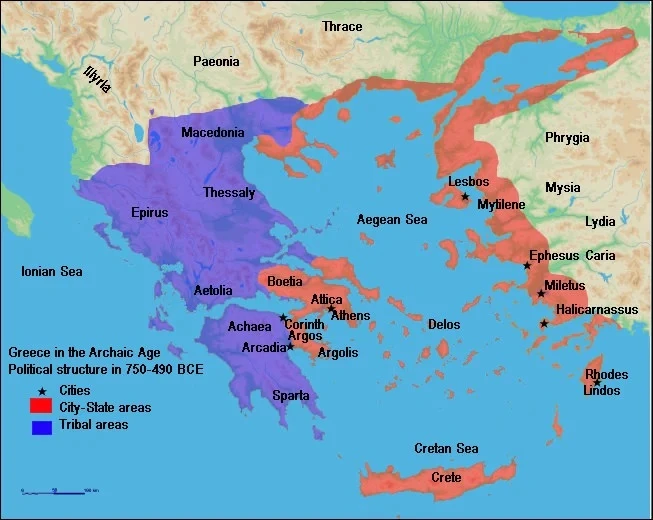
Greece is located in southern Europe. It is the largest country in the Balkans and the southernmost point of the entire Balkan Peninsula, with about 4,000 islands of all sizes.
It is situated in the southeast of Europe. 227 of these islands are populated.
With Turkey in the east, Bulgaria, North Macedonia, and Albania in the north, and a sea border with Italy in the west, Greece shares boundaries with these countries.
Additionally, it has maritime boundaries with Cyprus, Egypt, and Libya in the southern Mediterranean region.
Except for the north, Greece is completely encircled by water. To the east, south, and east are the Aegean Sea, the Mediterranean Sea, and the Ionian Sea respectively.
Know facts about Greece
The official name of the nation is the Hellenic Republic, but the Greeks, who identify as Hellenes, refer to Greece as Hellas. Greek citizens can join the EU.
Greek is the official language of Greece. Greek Orthodox Christianity is the state religion; however, the Constitution safeguards the freedom to practice any religion or none at all.
About 10,700,000 people are living in Greece.
Eastern European Time (UTC +02:00 in the winter and UTC +03:00 in the summer) and the euro are the country’s official currencies. Type C and Type F power outlets use 230V supply voltage and 50Hz to operate. Greece’s dialling prefix is +30. The right side of the road is used to drive in Greece.
Know what is required to get there
Since Greece is a member of the EU, all EU citizens who have ratified the Schengen Agreement may enter without a visa. Look at the list of these nations right here.
Other nations’ nationals may not require a visa to visit Greece, but you should always double-check. View the world’s countries and their respective visa requirements on the website of the Greek government.
Make sure to check this information first because you will need to apply for a visa if you do need one.
Best time to visit Greece
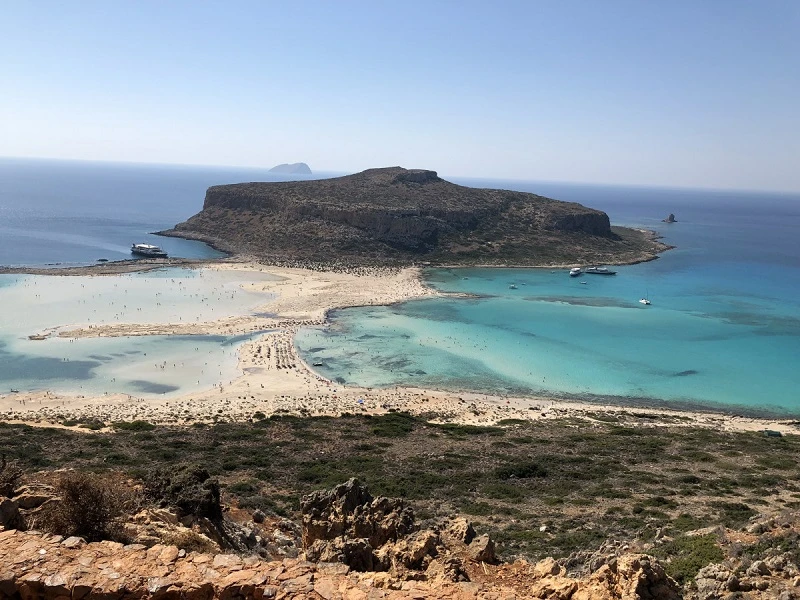
Greece may be visited at any time of year; some locations cater to both summer and winter vacations, including ski resorts.
That being said, it’s important to be aware of when things become extremely busy because this signals an increase in price and a likelihood of large crowds.
The official low season in Greece runs from November to March. The high season runs from July to August, and the midseason is from April to June. September through October are the months of the autumn season, sometimes known as the “extended summer.”
Of course, the high season is when you’ll find Greece at its busiest and most crowded. The prices are also the highest then.
If you don’t plan your investigations to take place early in the morning and late in the afternoon, you can encounter extremely scorching temperatures and heat waves during the height of summer.
Crowds and prices are generally lower during the autumn season, resembling the mid-season of Spring and early Summer. In these months, it’s warm enough to enjoy swimming in the ocean (particularly in the autumn), but not too hot that you risk suffering from heat stroke.
The majority, if not all, of tourist attractions are open and running during these months exactly like they are during the peak travel season.
The official low season, which is strangely the peak period for domestic travel, is winter. During this time, Greeks go to resorts across the country to take advantage of the winter wonderland.
Best places to visit in Greece
Greece offers a wide variety of stunning possibilities, interesting experiences, and discoveries, making decision-making challenging.
Even while the well-known locations are well-known for a reason—they are all incredible—look inside of yourself and decide what you would like to do and what sort of vacation you would like to have first.
Is it sipping a beverage while relaxing on a beach? Or is it hiking through stunning scenery? Maybe you have a strong interest in history and wish to visit every location.
Here are some of the places that you should visit in Greece:
Athens
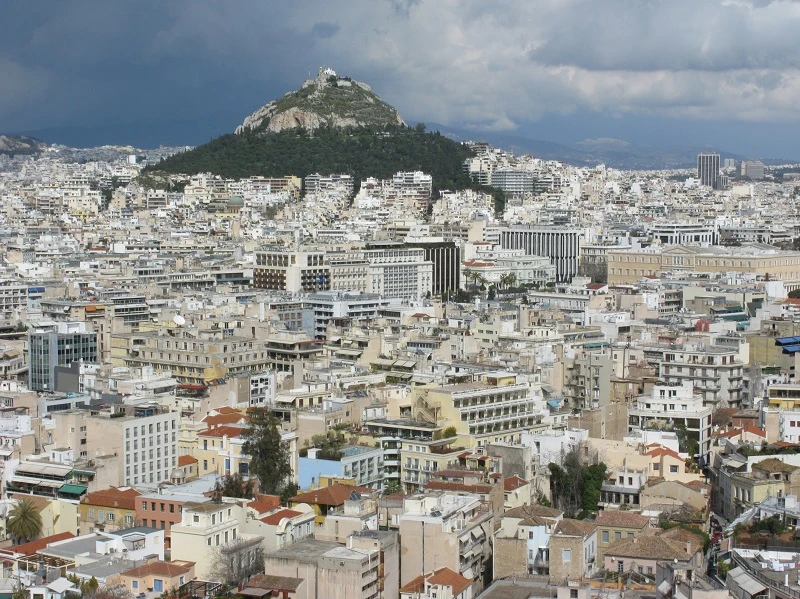
Greece’s main city, Athens, is a fantastic place to visit and must include if you plan a trip to Greece.
In addition to being the location of the well-known Acropolis, where the Parthenon watches over the vast metropolis, it is also home to several diverse districts and neighbourhoods.
Plaka, Athens’ historical district, as well as the numerous significant ancient sites, museums, and exhibits dispersed across the city, should not be missed if you visit.
Fine eating, traditional dining, exciting nightlife, and surprisingly romantic locations to visit all around the year.
Thessaloniki
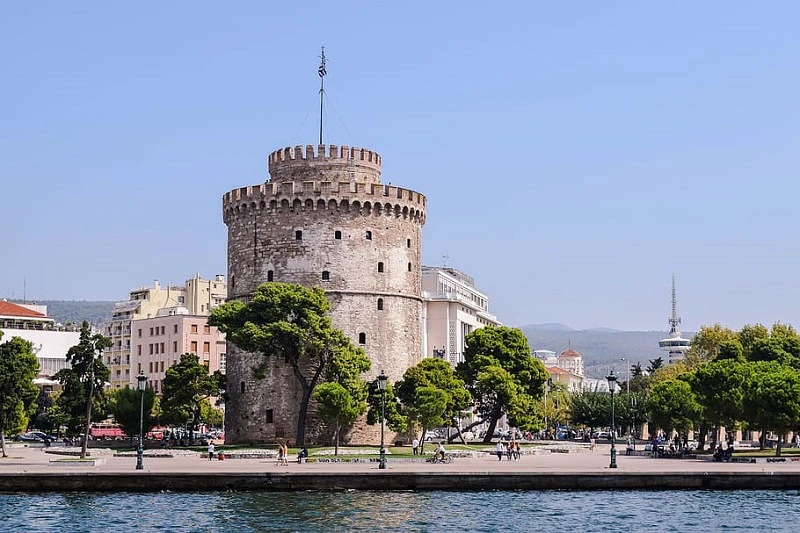
Thessaloniki, sometimes known as the co-capital of Greece, is the country’s northernmost city.
Thessaloniki is a stunning port city with one of the most lovely coastal promenades, great dining and street food, intriguing sites, and lovely places to walk and have fun.
It is also an excellent starting point for several-day journeys to other cities and towns in Greece that are equally stunning and famous for their architecture.
Nafplio
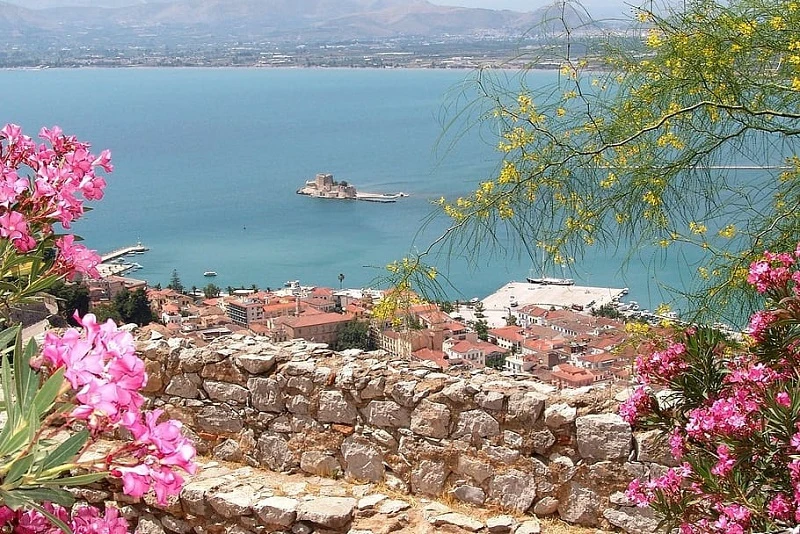
When Greece first declared its independence following the Revolution in 1821, the Peloponnese region’s Nafplio served as the nation’s capital. Nafplio does not let down when it comes to romantic outings and exceptional beauty.
It is a stunning city full of history, with architectural fusion styles from quite various cultures, including Venetian, Byzantine, and Ottoman.In addition, it takes only a few hours to drive there from Athens.
Crete
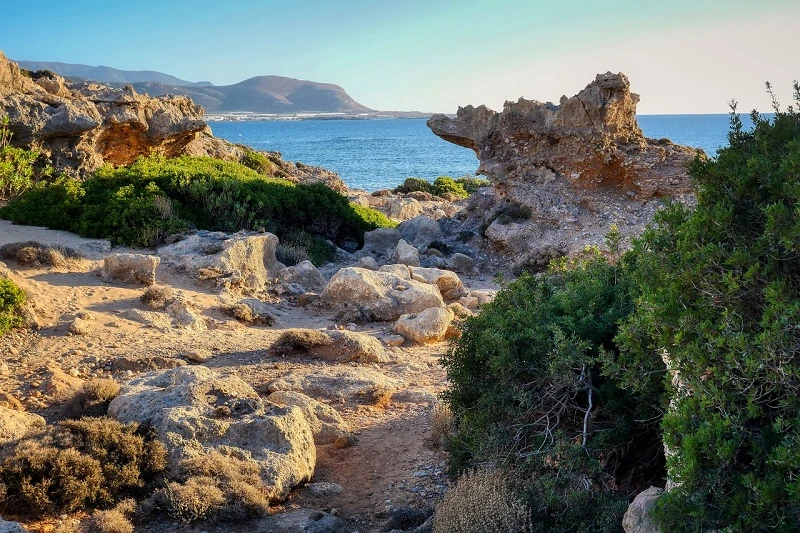
Crete is Greece’s largest and possibly most beautiful island. Crete is known for pretty much everything: breathtaking archaeological sites like the Palace of Knossos and Phaistos from Minoan times, gorgeous beaches, the incredible Samaria gorge you can walk through, and the well-known local Cretan cuisine and Cretan wines.
It is big enough to give the impression of both a mainland and an island environment.
You should plan a whole holiday around visiting Crete to fully appreciate all of its charms, including its numerous historical cities.
The Cyclades
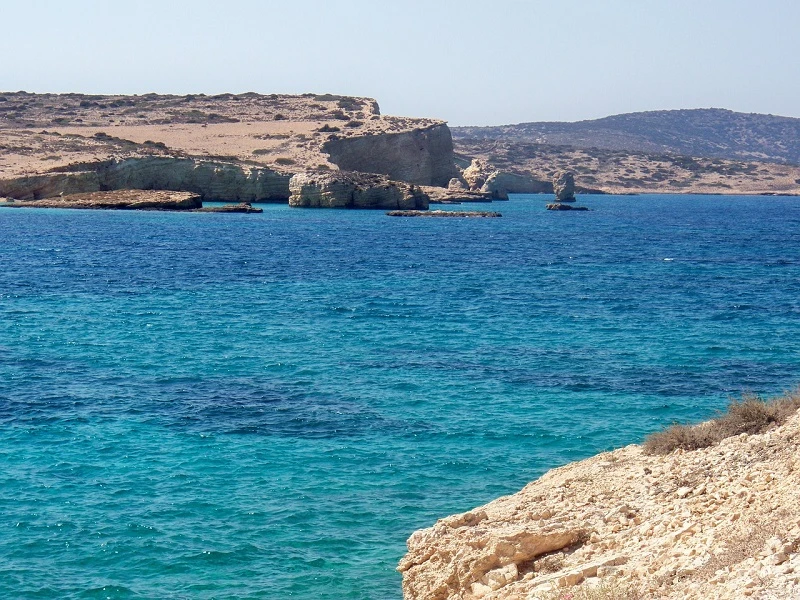
The Cyclades, a group of Greek islands, is where you can find the Aegean-facing blue-domed churches and the renowned, picture-perfect sugar cube dwellings.
The most well-known Cycladic islands are Santorini (Thera), a lovely volcanic island with stunning sunsets and a crater, Mykonos, which is famous for its windmills, and Syros, whose main town is neoclassical and worth seeing at least once.
The Ionian Islands
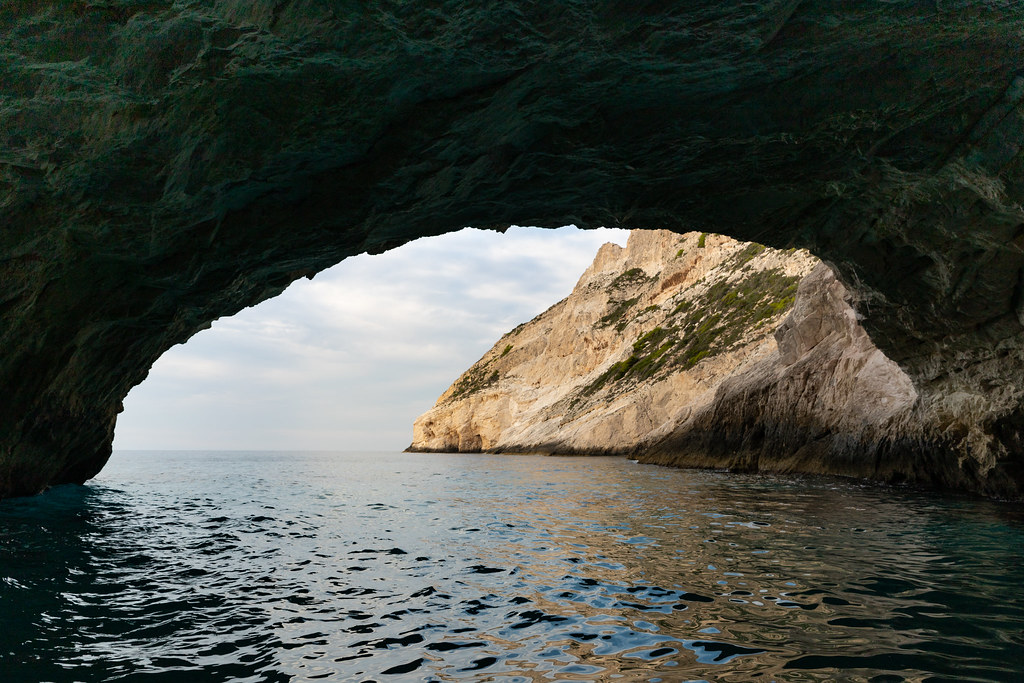
The Ionian islands, particularly Kerkyra (Corfu) with its iconic palace, Zakynthos and its world-famous beaches, and the breathtaking Kefalonia with its picturesque villages and surreal cave lakes are for you if you’re seeking a mix of Venetian, British, and Greek cultures.
The Dodecanese islands
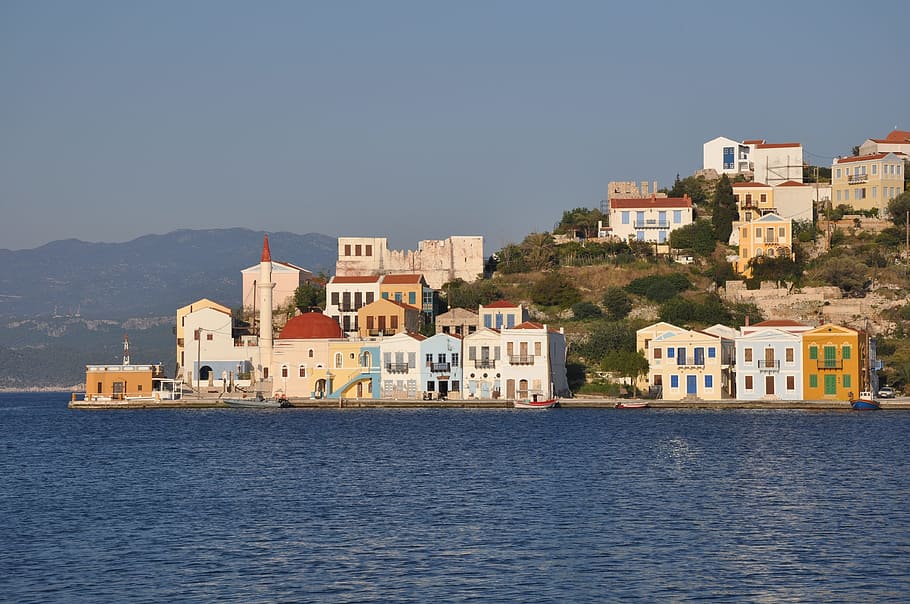
The Dodecanese islands have you covered if you’re a fan of mediaeval times and want to experience some of the Byzantine and French wonders while travelling back in time, with Rhodes being the most recognizable castle city island.
The Meteora region with its remarkable rock formations, the Halkidiki peninsula, Mani in the Peloponnese, Sparta and Mycenae, and many more sites provide unmatched beauty and uniqueness.
Spend some time investigating several options before making a decision.
Accommodation

In Greece, the accommodations you choose are crucial. It’s important to enjoy the place you retire to after a memorable day filled with novel encounters.
There are numerous accommodations to take into account for various budgets as you plan a trip to Greece. Hotels of all types, sizes, and locations are available across Greece, as well as bed & breakfasts, hostels, Airbnb, and even vacation rentals for villas and houses.
There are also other options for lodging, including tree houses and even camping grounds, including luxury camping grounds.
Here are some options for camping and glamping in Greece if you’re feeling daring and want a singular experience.
To find lower prices and a bigger range, you need to be diligent and thoroughly investigate the area where you will be staying well in advance.
Booking.com is a wonderful location to get started. If you wish to investigate the possibility of reserving a home, flat, villa, or another unique lodging, you might start by looking on VRBO.
Pack your bags wisely
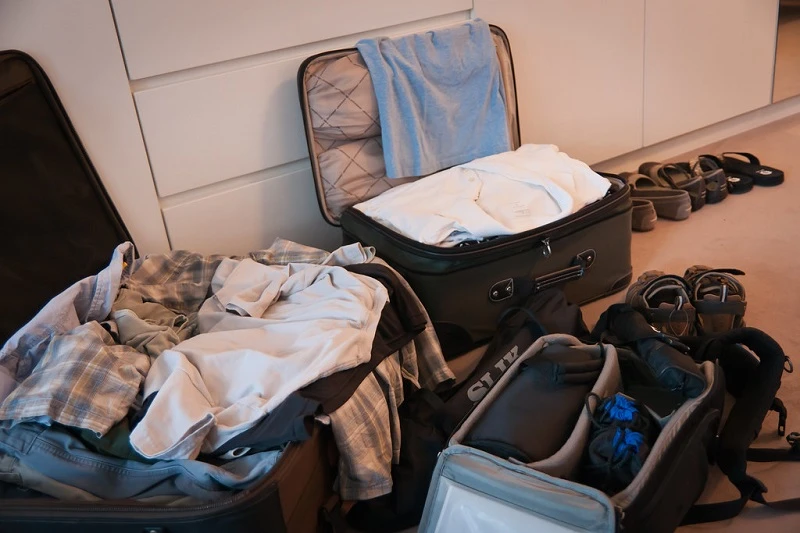
Your outfit selection and other items you carry should correspond to the season you decide to travel to Greece. Greece experiences mild winters and extremely scorching summers due to its Mediterranean environment.
But be careful not to let that give you the wrong impression. Always verify the top high and low temperatures for the season you will be travelling in addition to the average temperatures.
Even while winters in Greece tend to be mild on average, it frequently snows there, occasionally even in Athens or, more shockingly, in Crete! Therefore, always check and be ready for both the extreme and the typical.
Passport and ID
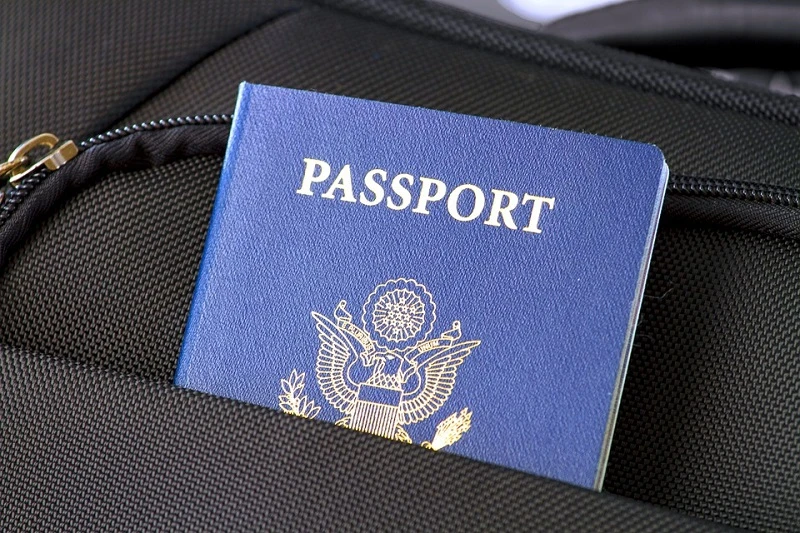
If you plan a trip to Greece, you should always carry valid identification with you. A police officer has the authority to stop you and ask for them, so keep that in mind.
The police officer has the right to escort you to the police precinct to verify your identity if you don’t have any on you. Although it does happen occasionally, it is advisable to avoid it.
Passports are the proper form of identification for travellers. State-issued identification is acceptable for EU nationals, while the passport remains the most secure alternative.
If necessary for your situation, make sure you also have your travel visa with you.
Travel Insurance

No matter where you go, having travel insurance is essential, and Greece is no exception. Make sure you have complete travel insurance, preferably with $1 million in medical coverage in case anything happens.
Read the terms and conditions of your travel insurance thoroughly to understand what is and isn’t covered. Some things that you might assume would be (like hiking) are frequently not.
COVID-19 documentation
There may be COVID-19 paperwork requirements, such as a covid-negative test or proof of immunization, depending on when you plan to travel.
Make sure you are aware of what is needed and that it is ready and prepared.
Conclusion
This little guide on how to plan a trip to Greece is just a taste of what we can tell you about Greece. You might be interested to learn more interesting, entertaining, and fascinating facts about Greece as you get ready for your historic journey there.
After a holiday, perhaps you want to surprise your friends? Whatever the situation, we have you covered.
